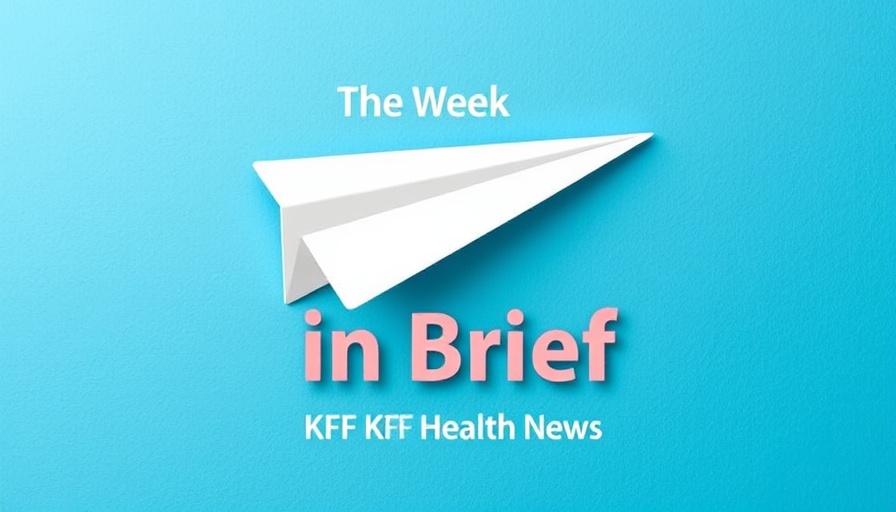
Unraveling the Kickbacks in Medicare Advantage
The recent lawsuit filed by the Trump administration's Department of Justice (DOJ) against Medicare Advantage insurers has brought significant revelations to light regarding the ethical standards in the health insurance industry. The DOJ alleges major insurers such as Aetna, Elevance Health, and Humana are implicated in arrangements that involved paying hundreds of millions of dollars in kickbacks to brokers like eHealth, GoHealth, and SelectQuote. These payments, made between 2016 and 2021, were intended to manipulate brokers into steering patients to specific Medicare Advantage plans while subtly discouraging enrollment from those who might incur more costs due to disabilities.
Why This Case Matters for Medicare Beneficiaries
This lawsuit highlights a problematic trend within Medicare Advantage, which currently serves over half of all Medicare enrollees. Unlike traditional Medicare, these plans are privately run and have garnered criticism for being more expensive per enrollee and imposing restrictions such as prior authorizations for essential services. The DOJ's suit is thus not merely a legal dispute; it underscores the broader implications for patient care and the integrity of health insurance recommendations.
Expert Commentary on Impending Reforms
Brian Connell from the Leukemia & Lymphoma Society emphasized that this lawsuit presents a stark reminder of the urgent necessity for reforms in Medicare policies. Experts argue that recipients must be assured that the advice given by insurance agents is transparent and genuinely catered to their health needs, rather than driven by commission incentives. This sentiment is echoed by whistleblower Andrew Shea’s attorney, who voiced the need for structural changes in how Medicare Advantage plans operate.
Looking Ahead: What This Means for Future Medicare Policies
As the DOJ's case unfolds, all eyes will be on Congress to initiate significant reforms that address the issues raised by this lawsuit. With Medicare Advantage's growing presence in the healthcare landscape, there’s an expectation for increased scrutiny and regulatory oversight to ensure patient welfare is prioritized over financial gains for insurers and brokers alike. This case could serve as a catalyst for a national conversation on the ethics of health insurance sales practices and the protection of vulnerable groups in the healthcare system.
The unfolding legal and regulatory battles remind us that Medicare Advantage, while popular among many beneficiaries for its additional benefits, must come with safeguards that assure patients’ health needs are prioritized. As this issue develops, staying informed and engaged is vital for those navigating their Medicare options.
 Add Row
Add Row  Add
Add 




 Add Row
Add Row  Add
Add 



Write A Comment